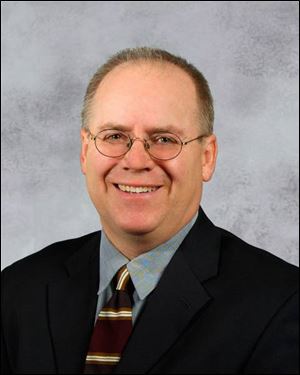
New director of Great Lakes panel praised
7/3/2006
Eder
ANN ARBOR - The Great Lakes Commission's new executive director has more than 25 years of experience with three of the region's most influential environmental groups.
Tim Eder, 48, a native of Chelsea, Mich., who is married and the father of two teenage girls, has spent the last 17 years with the National Wildlife Federation, including a lengthy tenure as director of its Great Lakes office in Ann Arbor. More recently, he served as the group's director of water resources for national programs out of Washington.
Commission chairman Tom Huntley, a Minnesota state representative who belongs to that state's Democratic-Farmer-Labor Party, called Mr. Eder "an outstanding choice to lead this organization and shape its future direction as it pur-sues its vision of a healthy environment, prosperous economy, and high quality of life for all citizens of the Great Lakes region."
Mr. Eder has been adept at brokering compromises through his roles at the wildlife federation, which represents a diverse group of hunters, fishermen, wildlife lovers, and environmentalists, said Mr. Huntley of Duluth, Minn.
Michigan Lt. Gov. John Cherry, the commission's vice chairman, said Mr. Eder's Washington experience, including testimony before Congress, "will be critical in our efforts to win federal support for protecting and restoring the Great Lakes."
Mr. Eder's first job upon graduation from Michigan State University in 1981 was with the Michigan United Conservation Clubs. The Lansing-based MUCC, Michigan's largest organization for hunters, fishermen, and other outdoorsmen, was at the time a powerhouse in the state capital.
From 1986 through 1988, Mr. Eder was with Great Lakes United. Now one of the largest U.S.-Canada coalitions of citizen groups, Great Lakes United was founded in 1982 on Mackinac Island by regional activists, including the late Yippie leader Abbie Hoffman. Its central office has been in Buffalo since 1985.
Mr. Eder takes over the Great Lakes Commission's helm next Monday. In his new job, the "tactics may be a little different, but the goals and objectives are the same," he said.
The commission gets just over 10 percent of its $5 million annual budget from the $65,000 a year each of its eight members contributes. The rest comes from grants, Mr. Huntley said.
Its role is to promote uniform, consistent policies that help strike a balance between economic development and environmental stewardship.
"The real power of the Great Lakes Commission is it represents the states collectively," Mr. Eder said. He said the region "is strongest when it's united and speaks in one voice."
He said he saw that happen in December, when the eight Great Lakes governors and two Canadian provincial leaders finalized plans for a regional compact on water diversions and bulk exports at a summit in Milwaukee. The set of agreements, called Annex 2001, would update a 1985 charter among governors by placing further restrictions on Great Lakes water to those outside the region, while promoting more conservation within it. Congress is to vote on it.
Mr. Eder said he saw the region come together on the Great Lakes Regional Collaboration effort the Bush Administration created in response to a Government Accountability Office report that said Great Lakes restoration efforts had become too fragmented.
The collaborative effort identified $20 billion of priorities. The Bush Administration, though, declined to provide any significant levels of new funding beyond a few million under the Great Lakes Legacy Act. That act is used for cleaning up polluted sediment near select harbors.
Sewage upgrades were identified as the greatest need. The Bush Administration has called for deeper cuts nationally in the U.S. Environmental Protection Agency's chief fund for that.
While at Great Lakes United, Mr. Eder was involved with the last amendments to the Great Lakes Water Quality Agreement that President Richard Nixon and Prime Minister Pierre Trudeau signed in 1972.
The agreement, administered by the U.S.-Canada International Joint Commission, was a turning point for the lakes' recovery. It is being reviewed in the next two years to see how it can become more in sync with modern issues such as global warming and urban sprawl.
Contact Tom Henry at: thenry@theblade.com or 419-724-6079.